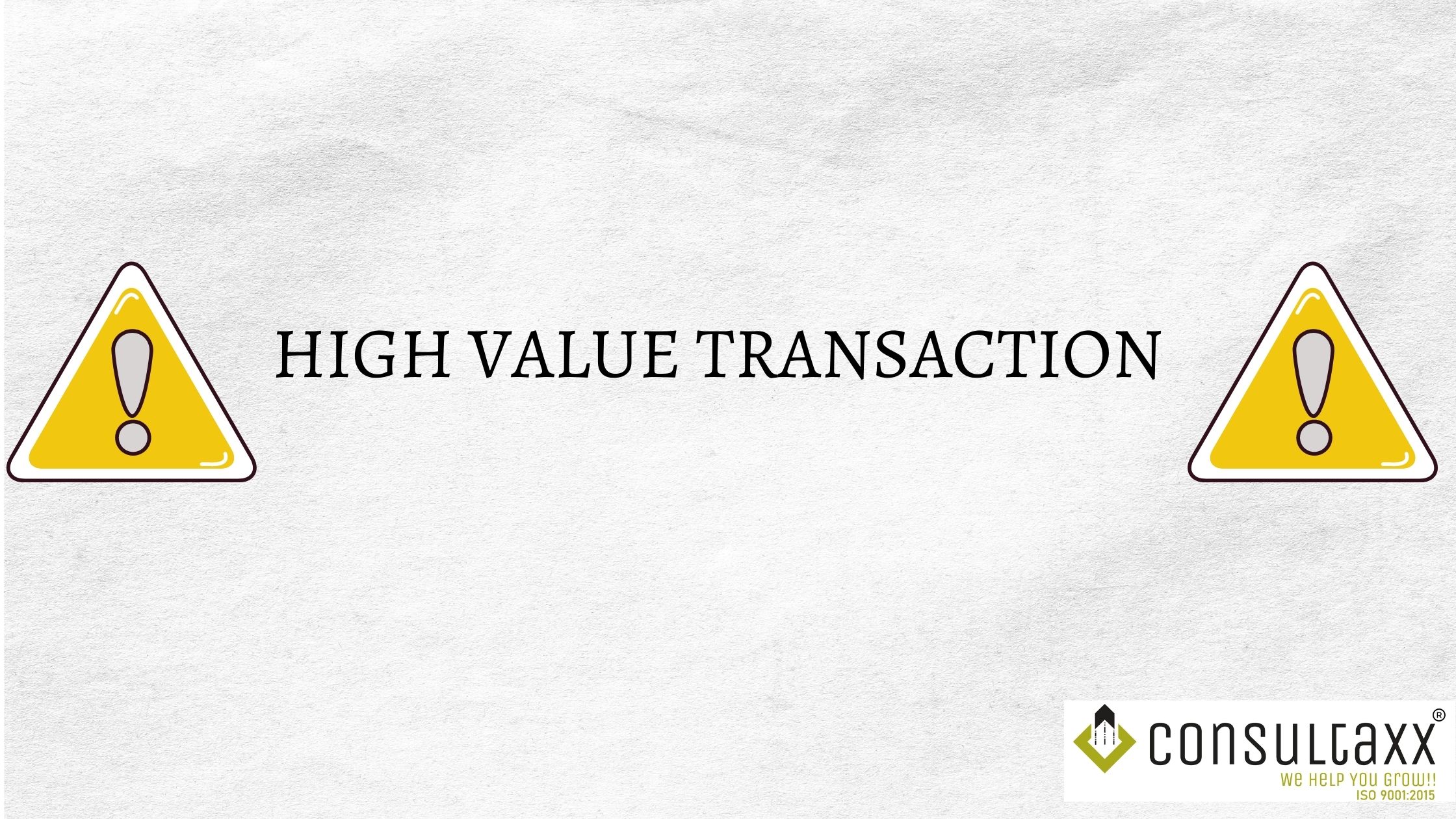You must have heard many times that you may receive notice from the Income-tax department because of the high-value transactions.
The income tax authorities keep track of the high-value transactions intending to curb black money and tracking tax evasions. The department can find such high-value transactions through the “Statement of financial transactions” (SFT).
Before moving ahead towards the meaning of high-value transactions, it is important to know about SFT.And how does it help the income tax department to track your hefty transactions?
Statement of financial transactions (SFT)
Statement of financial transactions (SFT) is a report that contains the details of the specified financial transactions. The specified entities furnish such a report.
In case the specified financial transactions exceed the prescribed threshold limits, the entities have to report the transactions to the Income-tax authority.
Besides that, the tax department has also introduced the revised Form 26AS (Annual tax statement). Now, Form 26AS contains the details of all high-value transactions. It also helps the taxpayers in filing their return of income without missing any income.
Specified entities
The statement is required to be filed by the specified entities, such as
- Banks and financial institutions,
- Mutual Fund Companies,
- Companies issuing bonds or debentures or shares
- Sub-Registrar offices on real-estate deals
These specified parties maintain a record of the high-value transactions during a financial year by the assesses. And file the SFT statement.
High-value transactions
The following high-value transactions are required to be reported by the specified to the income tax department:
- Purchase and sale of immovable property: Purchase or sale of the immovable property exceeding Rs. 30 lakh or more. The property registrars or sub-registrars will report it to the department.
- Cash deposit in Bank accounts: If aggregate cash is deposited Rs. 10 lakhs or more during a financial year, then the banks shall report such deposits. The aggregate value of Rs. 10 lakhs shall be taken together in one or more accounts of the assessee (excluding current account and time deposits).
- Credit card payments: If you are making repayment of credit card, then the banks report the transaction; if (a) Repayment in cash and the aggregate amount is Rs. 1 lakh or more. (b) Repayment by any other mode and the aggregate amount is Rs. 10 lakh or more.
- Cash deposit in time deposits: If a person has deposited Rs. 10 lakh or more in one or more-time deposits during a financial year, then banks have to report it to the department. However, the time deposit made through renewal of another time deposit shall not be considered for an aggregate value of Rs. 10 lakhs.
- Cash deposits in current account: Cash deposits or withdrawals aggregating to Rs 50 lakh or more in a financial year in one or more Current Account of a person.In addition, cash payment of Rs. 10 lakhs or more for the purchase of the bank draft or pre-paid instruments of RBI shall also be reported by the bank.
- Purchase of foreign currency: Purchase of foreign exchange of currency transactions of Rs. 10 lakh or more through any mode. It includes traveller’s cheque, forex cards, debit or credit cards. Here, an authorized dealer, money changer, or any other person authorized to deal in foreign exchanges shall be liable to report.
- Purchase of financial instruments: Purchase of shares, debentures, bonds, and mutual funds of Rs. 10 lakh or more through any mode. The companies and institutions issuing such financial instruments will have to report such transactions.
When taxpayer’s action is required concerning the high-value transactions?
It is observed that taxpayers file their ITR with less income than actually received to reduce their income tax liability. But, with the new Form 26AS, it is not easy for the assessee to escape from declaring all sources of incomes.
The taxpayer has to ensure that Form 26AS reflects all the incomes correctly arises from these high-value transactions. Such transactions should be filed correctly in the income tax return to calculate the accurate tax liability.
If there is any mismatch in Form 26AS and ITR incomes, you may receive an income tax notice.
Conclusion
Many taxpayers do not disclose their high-value transactions in the return of income. Therefore, now the taxpayers should remain cautious while doing any high-value transactions; otherwise, their ITR will scrutinize by the Income-tax department.
However, such non-disclosure of high-value transactions attracts penal actions.




